Best podcast mixers: The central hub of your podcasting setup
Find the ideal mixer for podcasting with our top picks from Rode, Yamaha, PreSonus, and others – from budget to pro
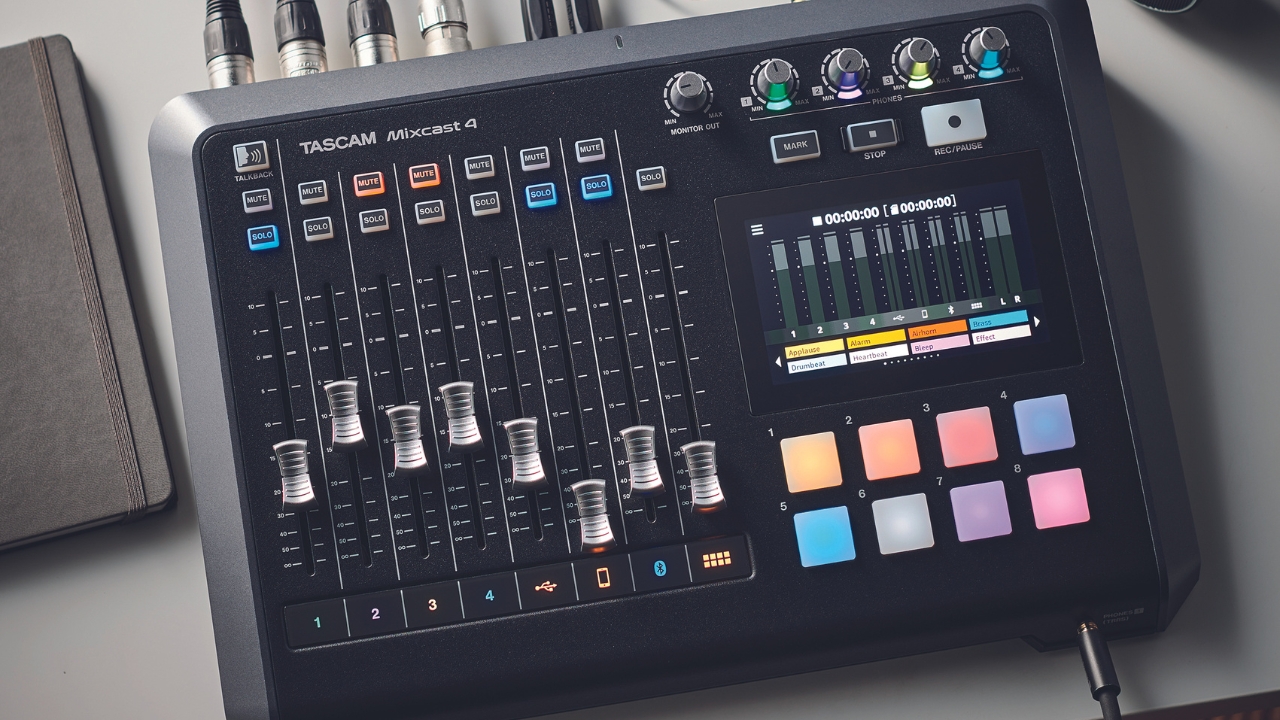
Want all the hottest music and gear news, reviews, deals, features and more, direct to your inbox? Sign up here.
You are now subscribed
Your newsletter sign-up was successful
Whether you're a seasoned podcaster or just starting out, choosing the best podcast mixers can change your production process completely for the better. Now not everyone actually needs a podcast mixer, but they are useful to have if you want more options, or an improvement to the audio quality.
From built-in effects and multiple input options to ease of use and durability, there’s a lot to consider. In this article, we'll delve into the top podcast mixers available this year, highlighting their standout features and explaining why they might be the perfect fit for your needs. We'll also discuss the key benefits of using a dedicated podcast mixer and what to look for when making your selection.
By the end of this guide, you'll have a clear understanding of what makes a great podcast mixer great, and how to choose the one that will best support your creative ambitions. Let's dive in and help you find the perfect mixer to enhance your podcasting journey.
Our top picks
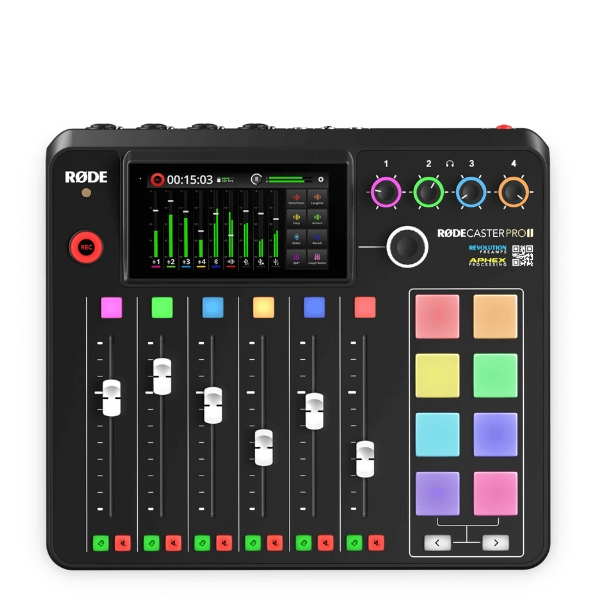
As one of the big names in podcasting microphones, it makes sense that Rode would have a quality podcasting mixer in their line-up as well. The Rode RodeCaster Pro II is, in one fell swoop, the ultimate mixer for podcasters on account of it being designed specifically for the medium.
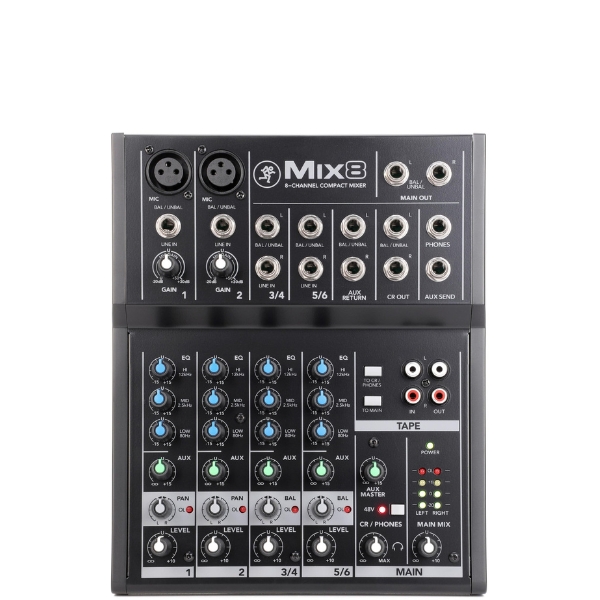
A very affordable mixer that offers a good amount of channels, the Mackie Mix8 is a brilliant choice if you need a podcast mixer on a budget. It's ruggedly built, easy to use, and will be a reliable component of any podcasting setup.
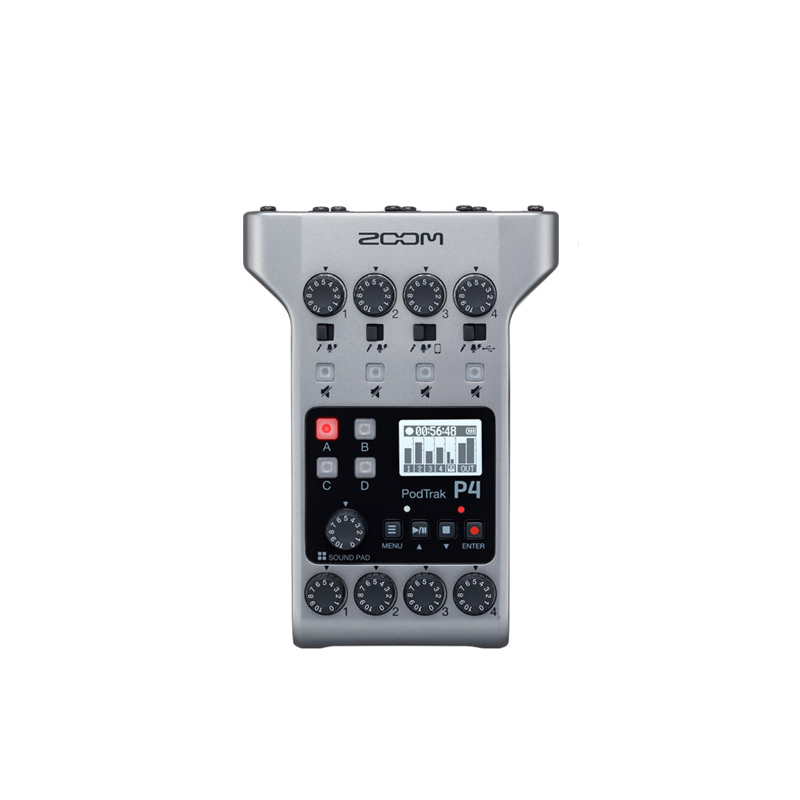
While having a dedicated studio space is, for many, the obvious and ideal solution for producing a podcast, there are times when you may be required to go to different locations to record. Zoom are the reigning kings of field recorders, and the Zoom PodTrack P4 is, for these situations, almost perfect.
Best overall
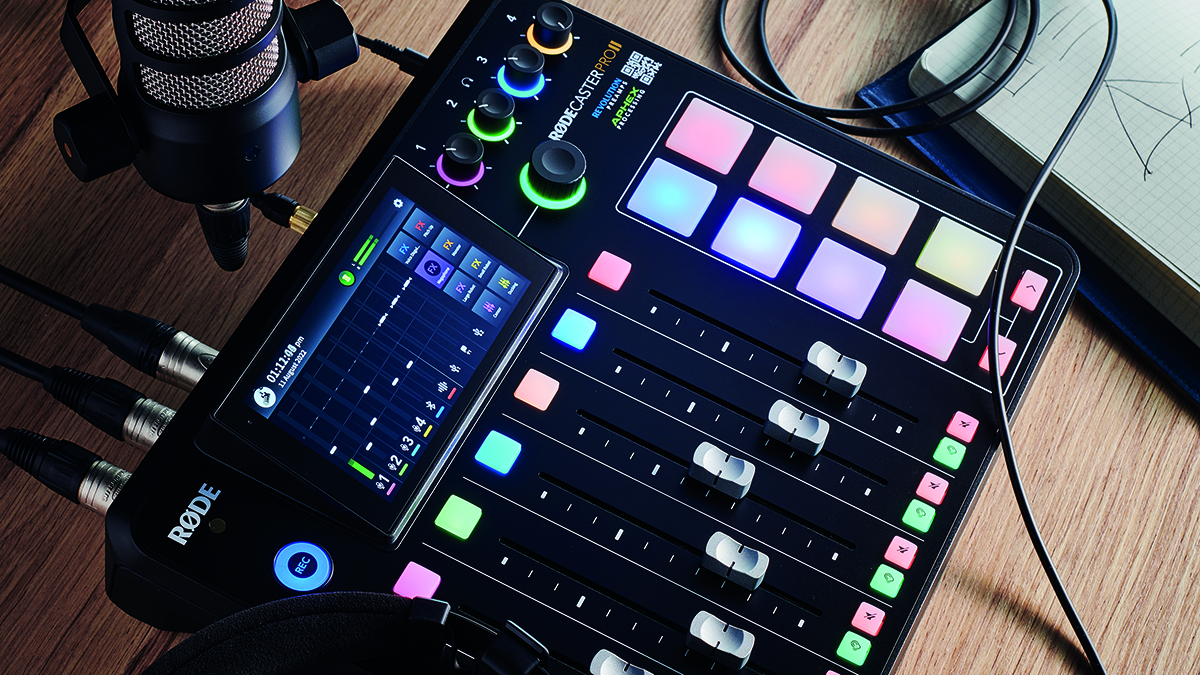
Specifications
Reasons to buy
Reasons to avoid
As one of the big names in podcasting microphones, it makes sense that Rode would have a quality podcasting mixer in their line-up as well. The Rode RodeCaster Pro II is, in one fell swoop, the ultimate mixer for podcasters on account of it being designed specifically for the medium.
And it’s amazing; four high-quality mic preamps ensure each voice is heard clearly, while we particularly liked the Bluetooth functionality which enables you to record phone interviews directly. Eight programmable pads on the unit also allow you to fire off pre-recorded sounds – perfect for adding in a spot of applause.
Unlike some of the other mixers on the list, the RodeCaster Pro II is effectively an all-in-one recording solution specifically for podcasting. Everything is captured at the source and stored on a MicroSD card, so you can relax and concentrate on recording your show. Highly recommended.
Read our full Røde RødeCaster Pro II review
Best budget
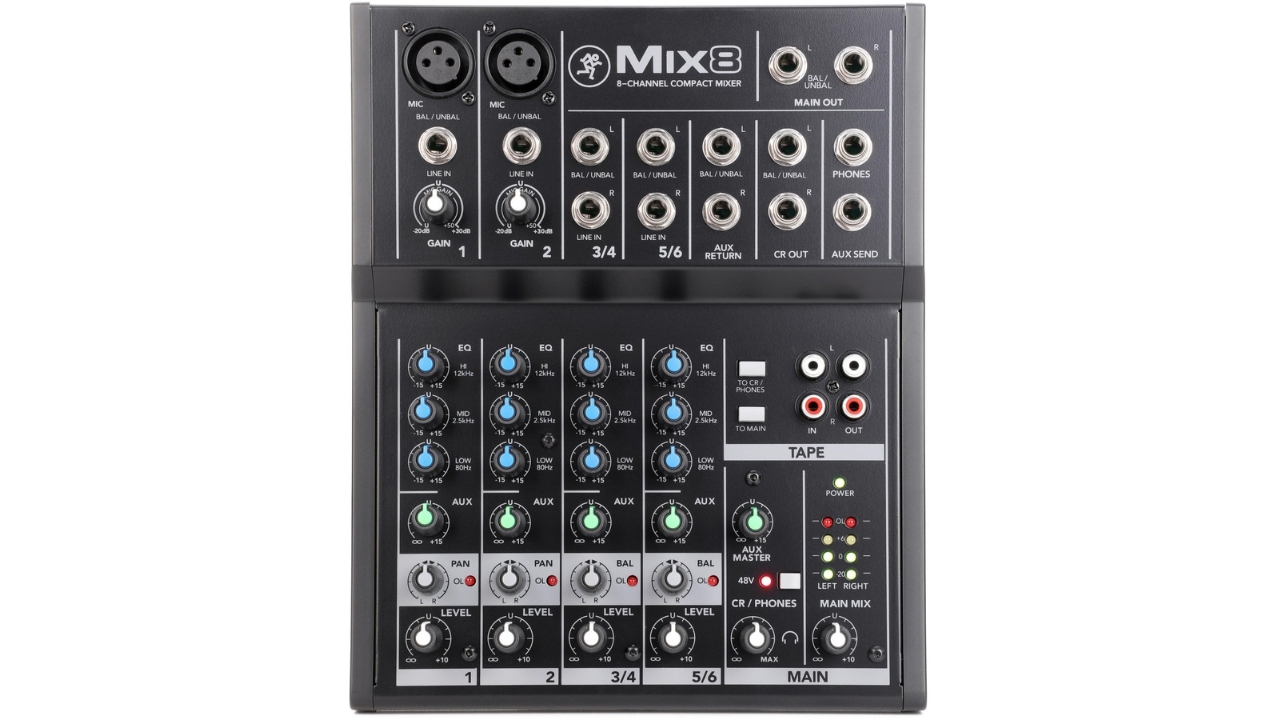
Specifications
Reasons to buy
Reasons to avoid
If you're looking for a podcast mixer on a budget, few will do it better than the Mackie Mix8. Sitting below the $/£100 mark, this 8-channel mixer is nice and simple to use, but powerful enough to help you get the best out of a podcast.
We loved the sound of the mic preamps, which while aren't quite as good as some others on this list, were perfectly serviceable for us. The sounds we got out of it were nice and clean, making it a good choice for spoken word or live music.
It's super easy to use too, even if you've never used a mixer before you'll be up and running in no time with this. Two mic channel strips and line channel strips are on the front panel, giving you plenty of control over your sound via a 3-band EQ. Although it's one of the more simple mixers on this list, for the money you really can't knock it.
Read our full Mackie Mix8 review
Best portable
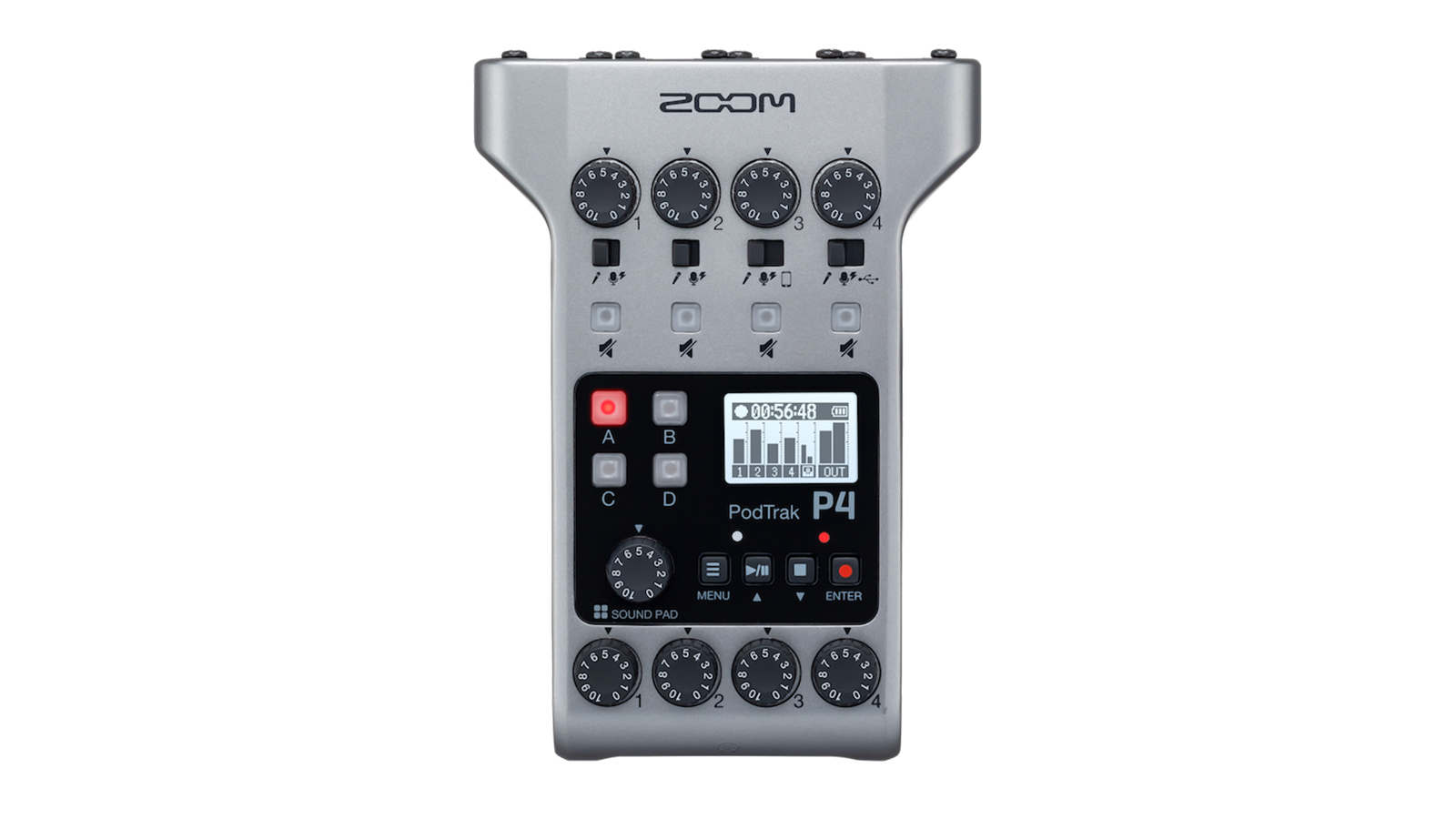
3. Zoom PodTrack P4
Our expert review:
Specifications
Reasons to buy
Reasons to avoid
While having a dedicated studio space is, for many, the obvious and ideal solution for producing a podcast, there are times when you may be required to go to different locations to record.
Zoom are the reigning kings of field recorders, and the Zoom PodTrack P4 is, for these situations, almost perfect because it can be battery-powered, boasts four XLR inputs, and can record either to a laptop via the USB-C connection or directly onto an SD card.
We say almost perfect because it doesn’t feature the highest audio fidelity – 16-bit/44.1kHz – but for the vast majority of users that should suffice. Pro users shouldn’t rule it out though, because while it may not make the centrepiece of a professional studio rig, it’s more than handy as a backup or for use in different locations. Great price, too.
Best for reliability
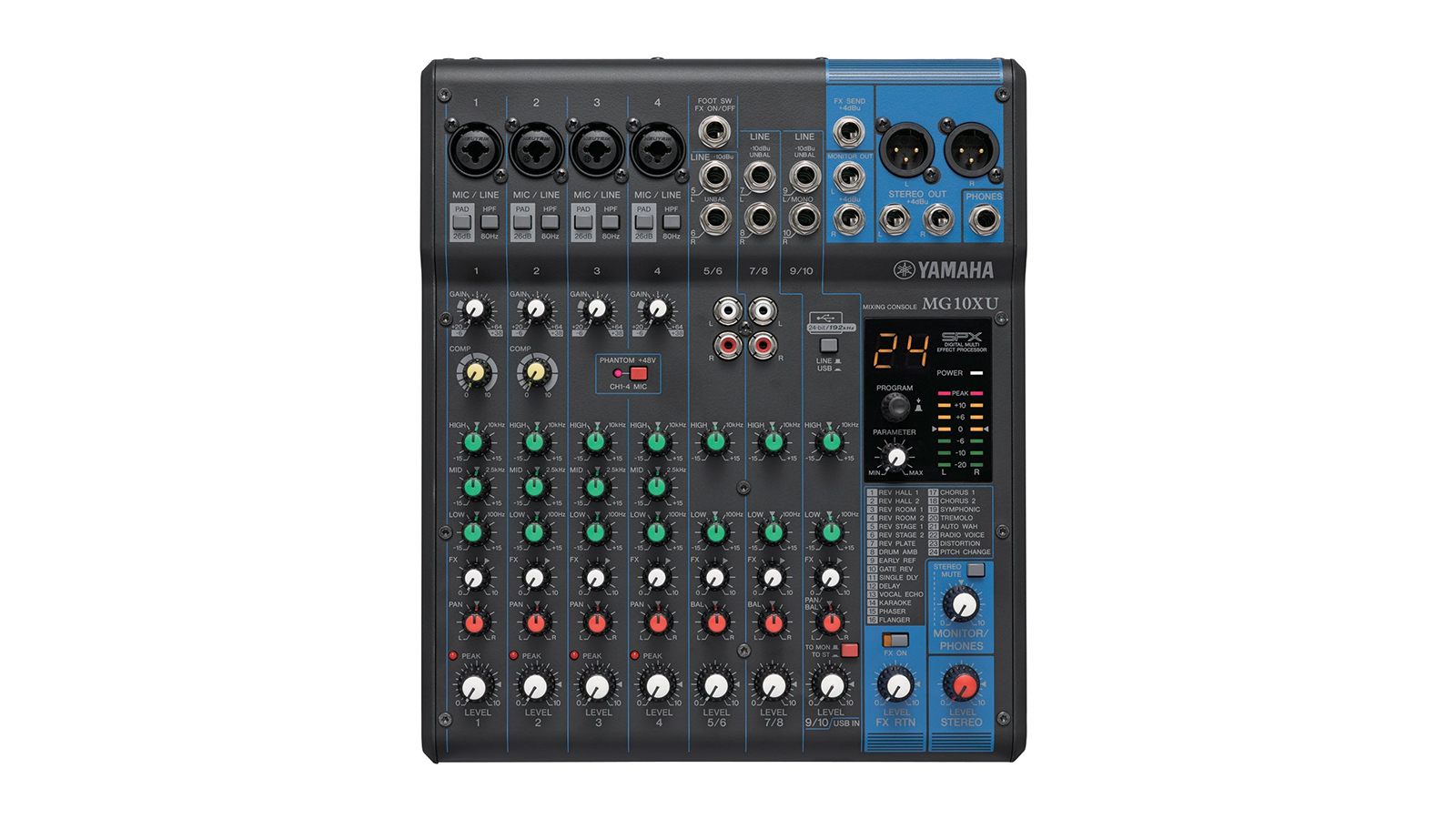
4. Yamaha MG10XU
Our expert review:
Specifications
Reasons to buy
Reasons to avoid
Yamaha has built itself a nice reputation in the sub-$/£300 mixer world, thanks to its MG series. These compact, feature-filled mixers can be found in venues and rehearsal rooms everywhere, thanks to their reliability and transparent sound.
We found that the Yamaha MG10XU is a be a superb choice for a budding podcaster. It packs in 10 input channels, including four XLR inputs, and a number of effects including a neat one-knob compressor which worked well for us.
If we were being picky, we’d have liked the USB output to provide individual tracks, as opposed to one summed stereo mix, but otherwise the MG10XU is a very solid choice.
Best tube podcast mixer
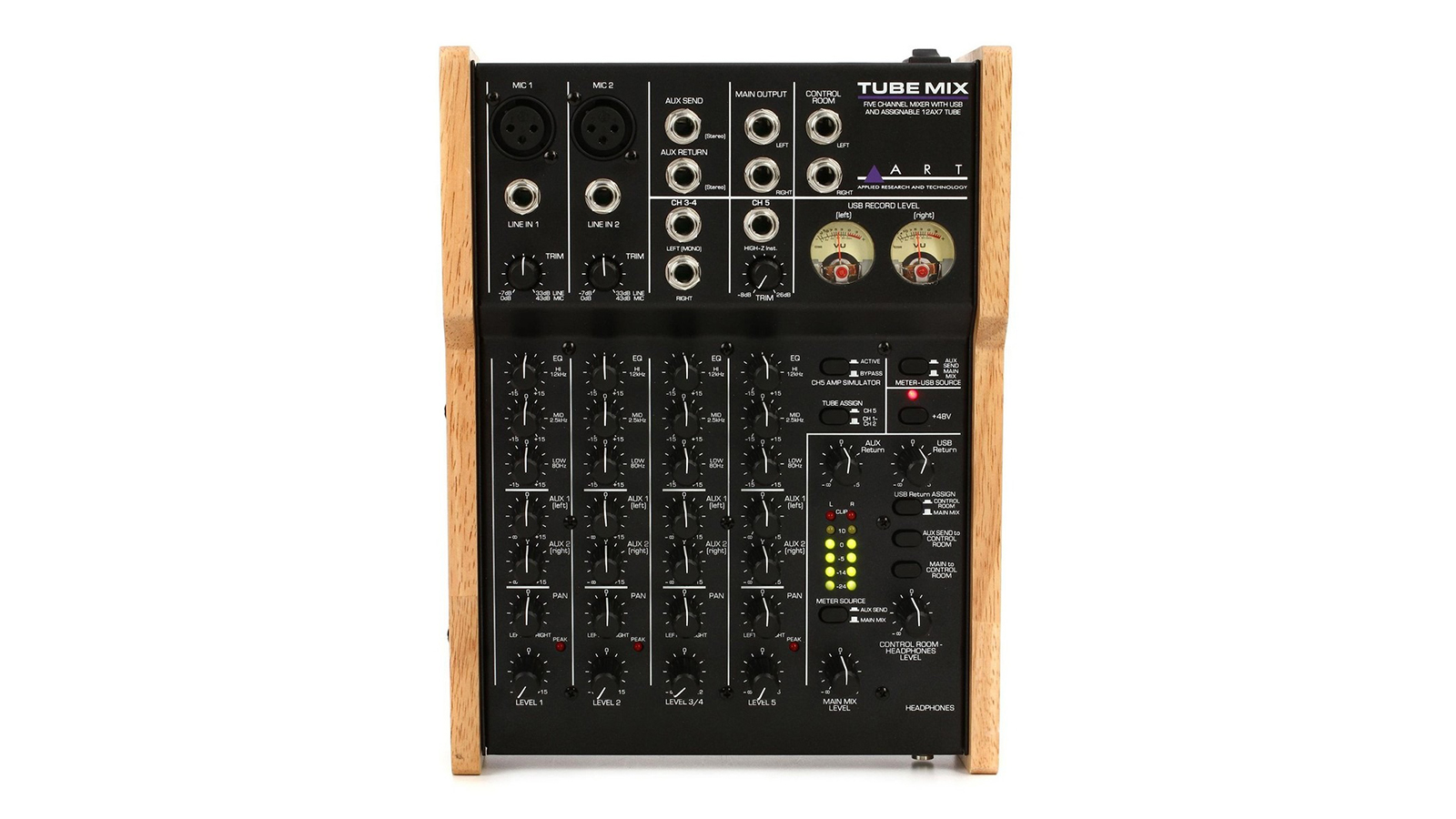
5. ART TubeMix
Our expert review:
Specifications
Reasons to buy
Reasons to avoid
Whereas some of the other contenders in this list look exactly as you’d expect a mixer to – all metal and knobs – the ART TubeMix does at least attempt to add a bit of visual flair. It shouldn’t matter, but it does.
Looking past the wood panelling and VDU meters, the TubeMix has another ace up its sleeve in the form of a 12AX7 tube preamp, which adds genuine valve colouration to the signal.
While it’s clearly aimed more towards musicians, with features like a dedicated high-z instrument input, we found that there’s a lot for podcasters to like with the ART TubeMix, especially considering the relatively low price point.
Best mixer with effects
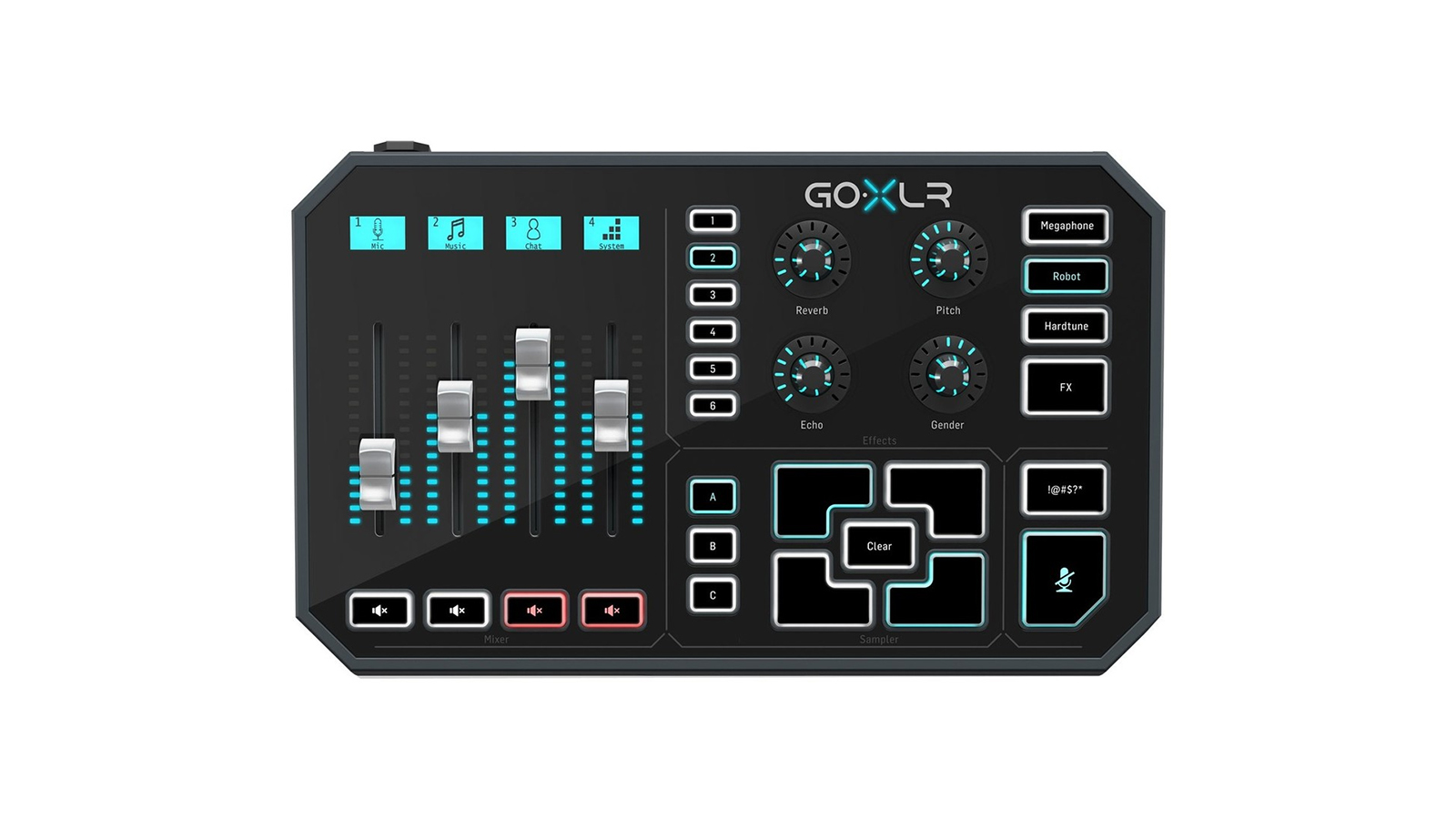
6. TC Helicon Go XLR
Our expert review:
Specifications
Reasons to buy
Reasons to avoid
One from the left field here… While the TC Helicon Go XLR is clearly intended as an audio mixer for streaming or gaming purposes, we could easily see it working in some specific podcasting situations.
Solo podcasters, for example, can make use of TC’s high-quality mic pre-amp via the XLR input, while the added effects and sample launching mean there’s plenty of scope for creativity.
It's solidly built, and nice and portable too. We love the motorized faders which offer a nice and smooth operation. It won’t suit every podcasting application, but it does what it does very well indeed.
More options...
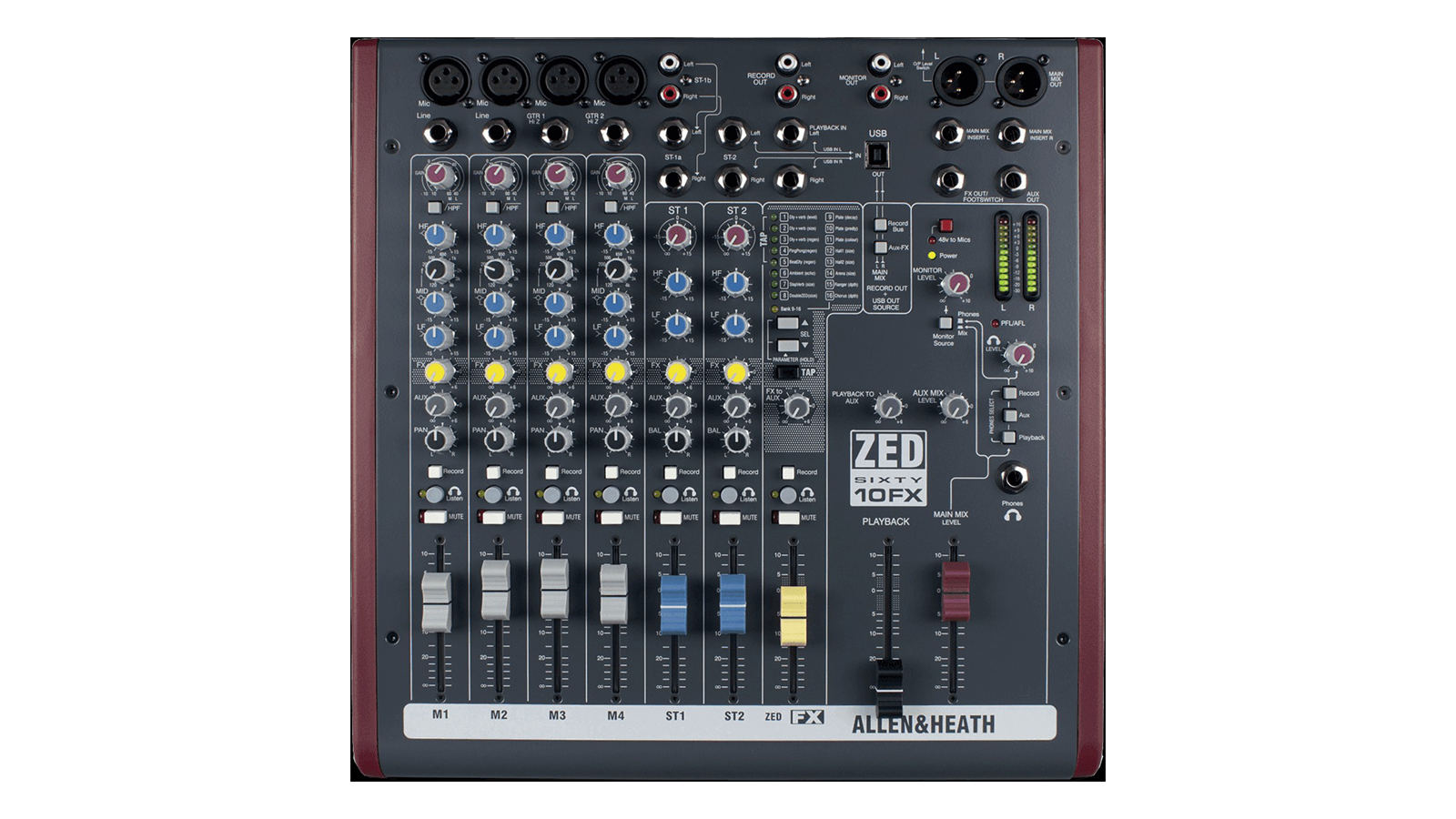
7. Allen & Heath ZED60-10FX
Our expert review:
Specifications
Reasons to buy
Reasons to avoid
If you’ve reached the point where you’re looking to commit to your podcasting career, and want to invest in a high-quality, well-specified mixer, then the Allen & Heath ZED60-10FX might be the perfect option for you.
It boasts all the inputs, outputs, and connectivity you’ll likely require, along with some capable digital connectivity from both USB and Bluetooth. The USB connection actually turns the unit into an audio interface with eight separate inputs, which is a godsend when it comes to mixing audio post-recording.
This is at the higher end of the price bracket, but when you add up all the features and functions you get, and ally them with the superb quality mic-preamps, you’ve got a pretty compelling package.
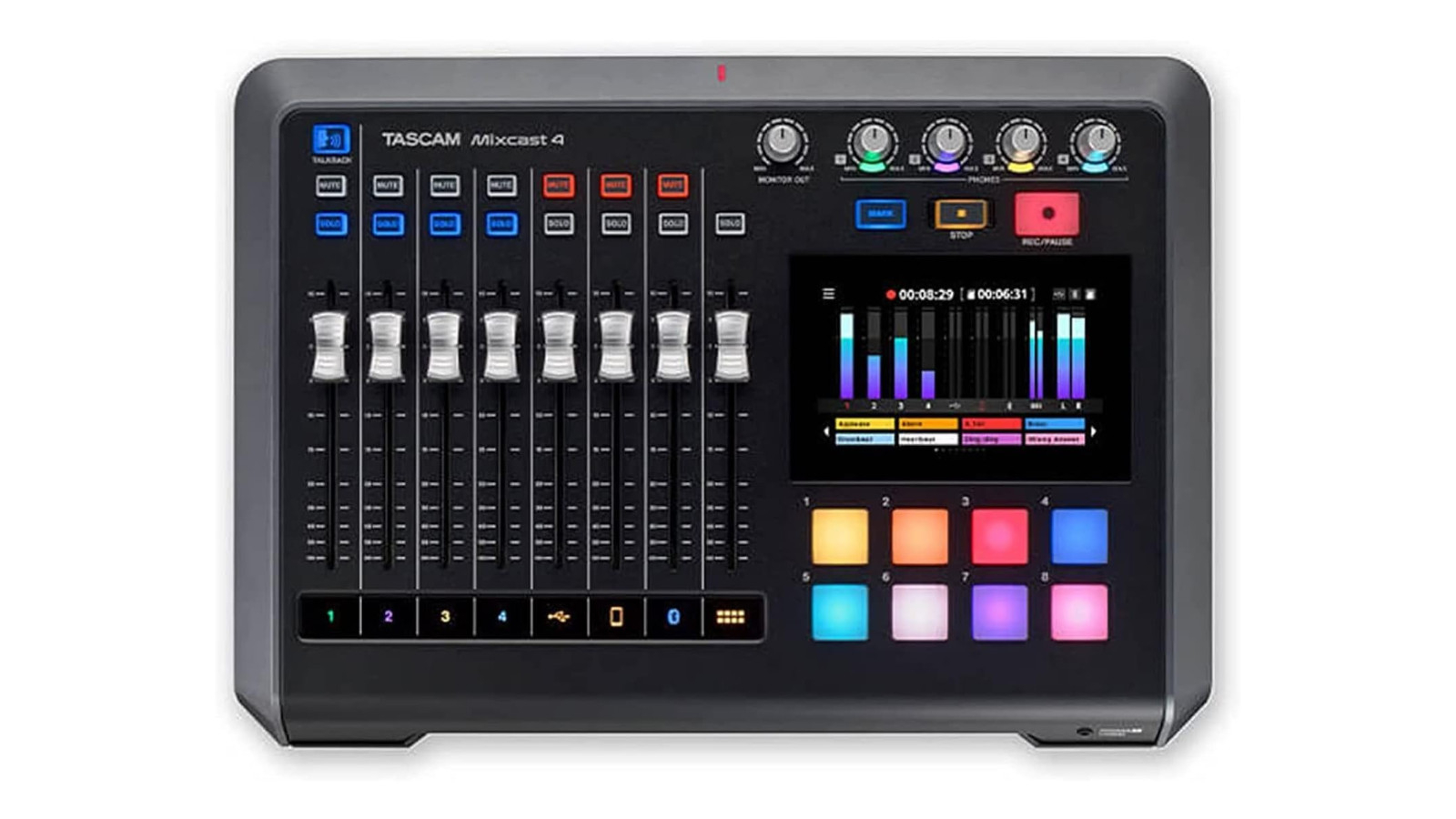
8. Tascam Mixcast 4
Our expert review:
Specifications
Reasons to buy
Reasons to avoid
As an all-in-one solution for the more established podcast producer, the Tascam Mixcast 4 is a heavyweight offering. It offers a ton of useful functionality and has a decent claim to being the only tool – other than your mics – that you’d need to create high-quality podcasts from anywhere.
We liked the onboard recording functionality (onto SD card), while the included effects brought a nice sheen to our finished recordings.
Plenty of inputs are available, including the ability to record phone interviews via Bluetooth, making a comprehensive package for any podcasts looking to step up their game.
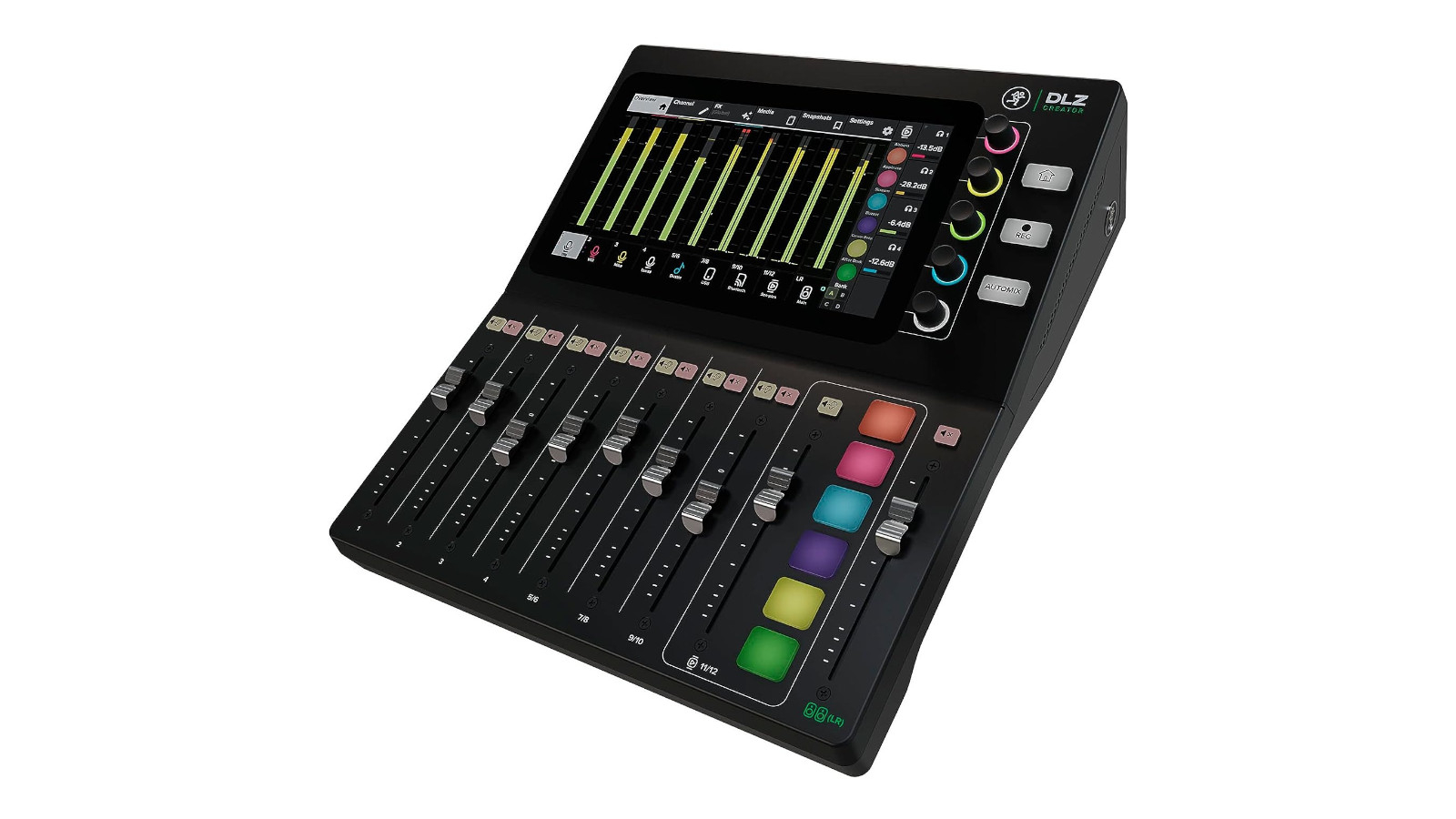
9. Mackie DLZ Creator
Our expert review:
Specifications
Reasons to buy
Reasons to avoid
If you’re the host/founder of a pod looking to take the next step up, you’ll likely have been eyeing up your options for an enhanced studio set-up. With the Mackie DLZ creator, there exists potentially all the studio you could ever feasibly need in one, beautifully designed hardware box. The DLZ Creator has plenty of mic inputs, along with other connectivity options like Bluetooth for airing phone interviews and the like.
We also liked how there was a start-up wizard, which guides new users through the initial set-up process. This is cool because not everyone starts a podcast knowing how audio interfaces and mixers work, so by holding the hands of less technically proficient users, the Mackie could be the perfect studio solution for everyone.
Yes, it is expensive. At the time of writing, the DLZ Creator was not far off seven hundred notes, which is serious money in anyone’s books. But as a reliable, fully-featured unit with room to cope with mid-to-large-scale podcast recordings, it’s a highly attractive package.
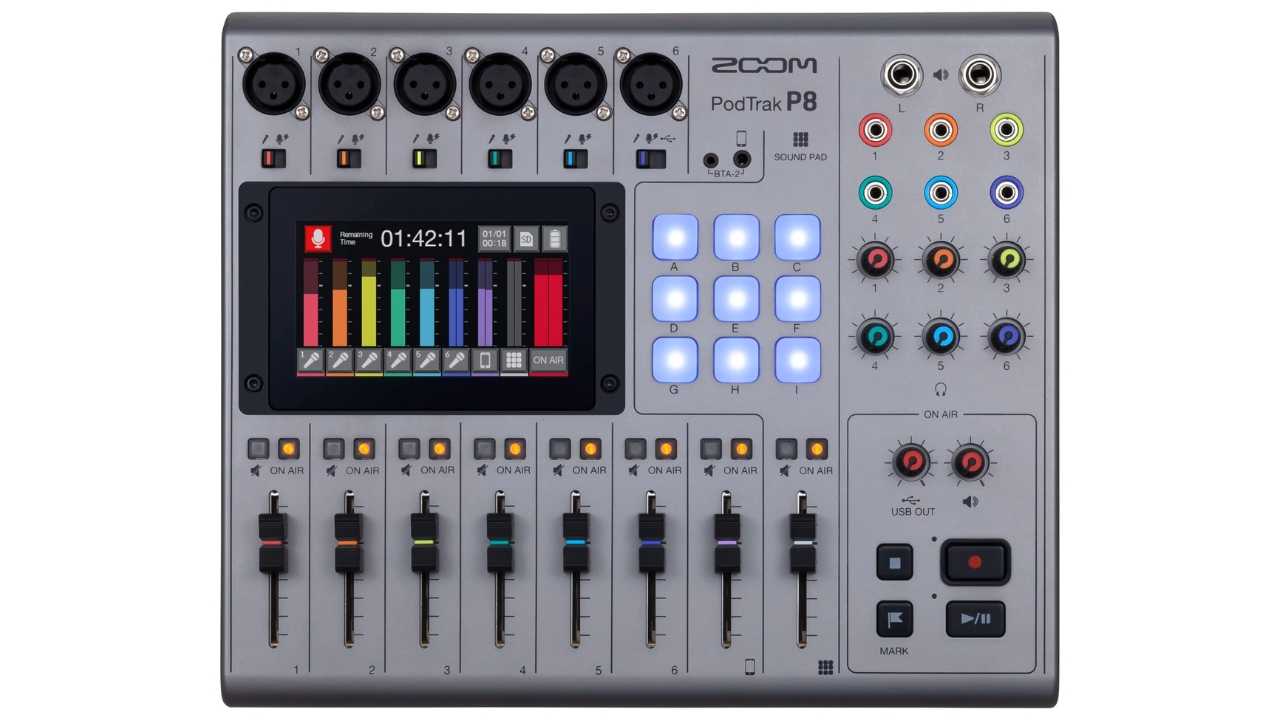
10. Zoom PodTrak P8
Our expert review:
Specifications
Reasons to buy
Reasons to avoid
The Zoom PodTrak P8 presents an outstanding option, particularly for those requiring a portable recording solution. With its six XLR inputs, it provides ample capacity for group recordings. Each channel features colour-coded controls, ensuring easy management of multiple inputs simultaneously.
The PodTrak P8 includes innovative features such as On Air Noise Reduction, which automatically reduces mic levels for unused channels, and a TRRS input for phone call interviews, enhanced by Bluetooth functionality via a separate dongle.
The touchscreen facilitates basic editing tasks, including trimming, splitting, and fading, simplifying post-production. Moreover, the PodTrak P8 can function as an audio interface when connected to a computer, making it ideal for live-streaming purposes.
FAQs
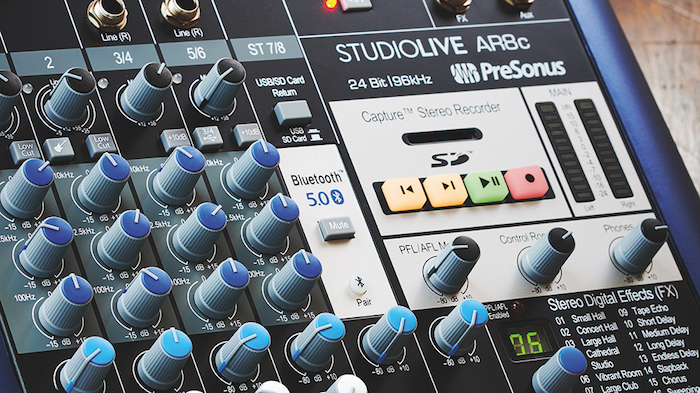
What is a podcast mixer?
All audio mixers, regardless of their size, serve one fairly simple purpose; taking audio from multiple input sources and mixing it together to form one unified output. Different mixers will offer all manner of extra functionality, like the ability to add effects or equalization, or different ways to connect to your devices, but fundamentally a mixer’s job is to… well, mix. In the context of podcasting, this likely means combining multiple microphones, along with perhaps music players or mobile devices, and giving the user control over the individual volume levels of each.
What should I look for in a podcast mixer?
When selecting a podcast mixer, there are several key features and considerations to keep in mind to ensure you make the right choice for your specific needs. First, consider the number of channels you require. If you’re planning to use multiple microphones and other audio sources simultaneously, a mixer with multiple channels is essential. This capability is particularly beneficial for interviews and panel discussions, where managing several inputs is crucial. Additionally, look for mixers with built-in effects and processing, such as compression, EQ, and reverb. These features allow you to fine-tune your audio and improve sound quality without the need for extra equipment.
USB connectivity is another critical feature, as it facilitates easy connection to your computer for recording and streaming. Mixers offering seamless integration with recording software can drastically simplify your workflow - no more swapping SD cards in and out. The quality of the preamps is also vital; high-quality preamps ensure that your microphones deliver clear, noise-free audio, capturing the nuances of spoken word effectively, without any noticeable distortion or noise from the recordings. Ease of use is an important consideration as well. User-friendly controls and an intuitive layout make a big difference, particularly for those new to using mixers. A mixer with clear labelling and straightforward functionality can enhance your recording experience.
Portability should also be taken into account if you plan on recording in various locations. A portable mixer can be more convenient for on-the-go podcasting, ensuring you can maintain quality recordings regardless of where you are.
Do I need a dedicated podcast mixer?
Choosing a dedicated podcast mixer over a regular studio mixer offers several advantages. Podcast mixers often come with features specifically designed for podcasting, such as sound pads for triggering music and effects, and telephone connectivity for live call-ins. These tailored features streamline the recording process and often include built-in recording capabilities, saving you time and reducing the need for additional gear. Additionally, specialized features like noise gates and de-essers in podcast mixers can help you achieve broadcast-quality audio, making your podcast sound professional and polished.
What are the best podcast mixer brands?
Several brands have established themselves as leaders in the podcast mixer market. Rode, known for its innovative, high-quality audio products, offers mixers like the Rodecaster Pro, which have become a favourite among podcasters for their comprehensive feature set and ease of use. Zoom is another reputable brand, renowned for its reliable mixers and recorders. The Zoom PodTrak series, in particular, is popular for its podcast-friendly features and portability.
Behringer provides a range of affordable yet capable mixers, making them a great option for podcasters on a budget who do not want to compromise on quality. Tascam mixers are also well-regarded for their durability and high-fidelity audio, offering a variety of models suitable for both beginners and advanced users.
Investing in a dedicated podcast mixer can significantly enhance your podcasting experience by providing specialised features, superior audio quality, and a more streamlined workflow.
How we choose products
Here at MusicRadar, we are experts in our field, with many years of playing, creating and product testing between us. We live and breathe everything music gear-related, and we draw on this knowledge and experience of using products in live, recording and rehearsal scenarios when selecting the products for our guides.
When choosing what we believe to be the best podcast mixers available right now, we combine our hands-on experience, user reviews and testimonies and engage in lengthy discussions with our editorial colleagues to reach a consensus about the top products in any given category.
First and foremost, we are musicians, and we want other players to find the right product for them. So we take into careful consideration everything from budget to feature set, ease of use and durability to come up with a list of what we can safely say are the best podcast mixers on the market right now.
Find out more about how we test music gear and services at MusicRadar.
Related buyer's guide
MusicRadar's got your back
- The best podcast recording software options - free and paid
- The best podcast headphones for all budgets
- Starting your own? You'll need one of the best podcast hosts
- The best podcasting headphones for your rig
- The best studio headphones for music production
- Best studio desks: organise your podcasting space
- Best studio chairs: are you sitting comfortably in your home studio?
- The best consoles for live mixing
Want all the hottest music and gear news, reviews, deals, features and more, direct to your inbox? Sign up here.
Chris Corfield is a journalist with over 12 years of experience writing for some of the music world's biggest brands including Orange Amplification, MusicRadar, Guitar World, Total Guitar and Dawsons Music. Chris loves getting nerdy about everything from guitar and bass gear, to synths, microphones, DJ gear and music production hardware.
- Matt McCrackenJunior Deals Writer
